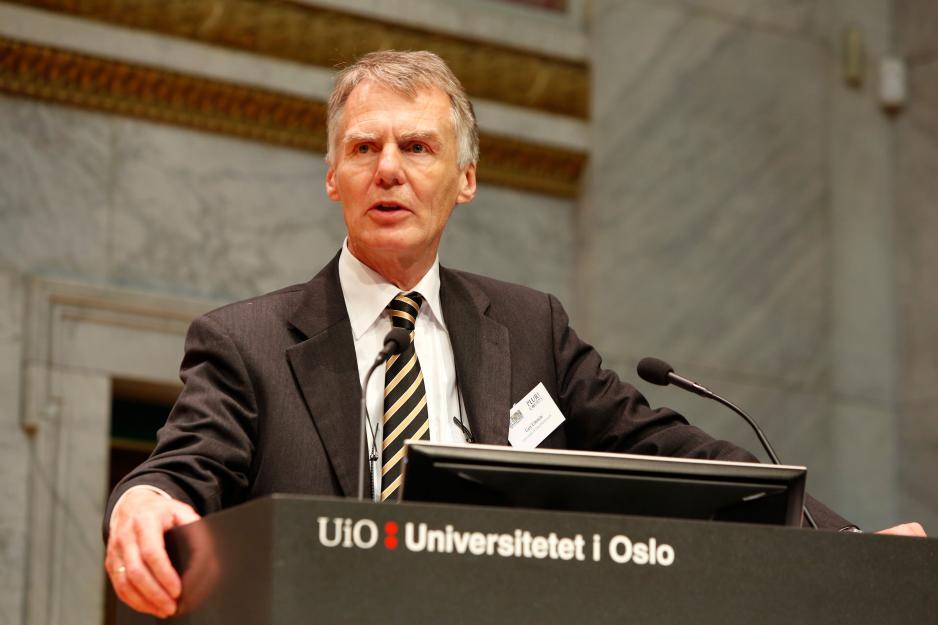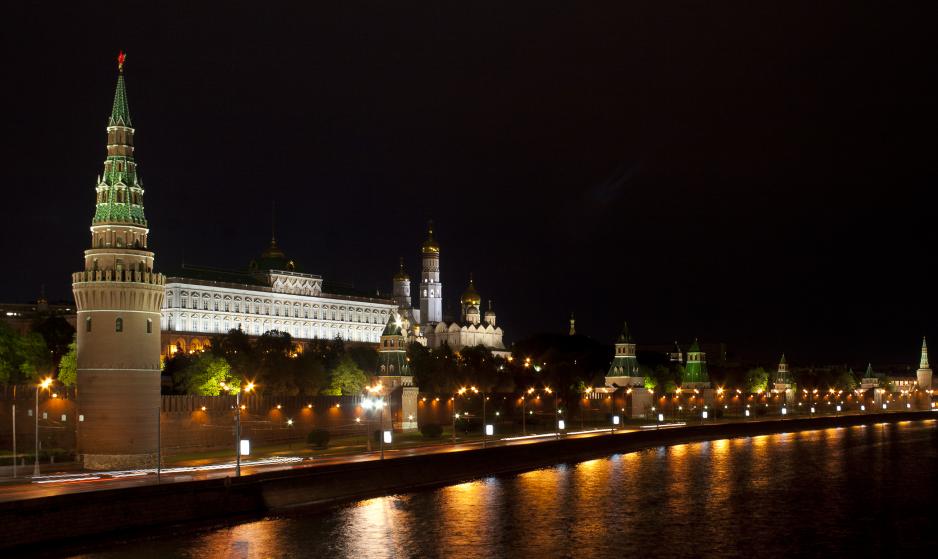Public International Law Expert: - Sanctions Have Only Negative Effects

Geir Ulfstein, professor of public international law at the University of Oslo.
Almost five years following the introduction of western sanctions against Russia, we see more confrontation and less cooperation. We must ask ourselves whether the sanctions should be changed or lifted, says expert on public international law.
Expert of public international law at the University of Oslo, Geir Ulfstein, goes a long way in supporting former Russia ambassador Øyvind Nordlsetten, who advises the government to lift the sanctions regime against Russia.
Ulfstein says the western sanctions aimed at Russia as they stand today have not worked according to their intent.
Does not require sanctions
He stresses that Russia’s invading the Ukraine was a violation of public international law, and that that implies a duty for other states to not acknowledge the Russian state’s authority over the Crimea.
However, this does not imply an automatic duty to further sanction.
- We have a right to introduce sanctions when Russia violates the ban on military intervention. And the states, including Norway, are free to decide whether these sanctions work or not. However, we then have to ask ourselves whether they work politically or if they have the opposite effect?
- I think that we have not seen any positive effects of the sanctions so far, however, we have seen various negative effects. Thus, it is timely to ask whether the sanctions should be changed or lifted, Ulfstein says.
- What negative effects have we seen?
- There are increased tensions between Russia and the West, and there are problems in cooperation between Russia and the West. This is evident in a number of areas. Cooperation between Norway and Russia appears to be going well in the north, however, we do not know how long that will last, Ulfstein says. He argues that former Nordsletten’s statements are worth taking note of.
- One should obviously take note of Nordsletten’s statements. He is a person who is very familiar with Russia, Ulfstein says.
We have seen various negative effects. Thus, it is timely to ask whether the sanctions should be changed or lifted.

The relationship beteween Russia and the West have gradually deterioroated over the past few years. In February, first the USA and later Russia withdrew from the INF Agreement, which regulates the deployment of land-based medium-range missiles with nuclear warheads.
Nordsletten offers advice
In the podcast "Helt på grensa" [Borderlines], published by the Barents Secretariat in Kirkenes, former Nowegian ambassador to Russia for eight years, Øyvind Nordsletten, provides advice to the government about how to improve the relationship with Russia.
Nordsletten expands his views to High North News, views on visa freedom, removing of sanctions and more industrial and economic cooperation.
- Achieving this today is not realistic, however, it should be regarded as a desired goal for Norwegian Russia policy. And it would mean a lot if it became a reality, Nordsletten says.
He points out that the visa requirement mostly hits northern inhabitants in a country, who have to pay to cross the border and then have to queue at a border crossing station.
- In that moment when a visa requirement between Russia and Schengen no longer exists, it will help remove the divide that hits ordinary people the most. Big politics is one ting, however, small politics – that which has to do with people’s everyday lives – is also important, Nordsletten says.
Believes that sanctions may last long
Nordsletten points out that there is no simple way out of the sanctions regime, which he argues has been legitimately introduced following Russia’s annexation of the Crimea.
Yet:
- The sanctions establish a dividing line between ‘them’ and ‘us’. Sanctions are a consequences of what happened at the Crimea, and there are good reasons for this. This is not about criticising the sanctions, it is more a desire and goal to get away from the sanctions regime. That would require finding a solution to the Crimea and the currently ongoing hybrid war in Eastern Ukraine, Nordlsetten says.
The sanctions establish a dividing line between ‘them’ and ‘us’.
He does not share professor Ulfstein’s statements about the sanctions regime only having negative effects.
- I would not be that categorical. You can argue that sanctions hit both ways. The sanctions have been a wake-up call for the Russian economy and fiscal policies, in particular to farming. Russia is now back as the world’s largest grain producer and is by and large self-supplied with agrarian produce. That was not the case prior to the introduction of the sanctions, Nordsletten says.
Different forms of sanctions
Ulfstein explains that sanctions, or restrictive measures, exist in a variety of forms. Diplomatic sanctions and economic boycott are amongst the most common forms, like the sanctions against Iran and North Korea.
Then there are ‘smart sanctions’ aimed at specific individuals, where assets held abroad by individuals or states are frozen, or they are denied visa.
- The use of smart sanctions tries to aim sanctions against those who are particularly guilty instead of punishing the whole population, which is the consequence of economic sanctions. However, in the case of Russia, a variety of sanctions have been introduced; against individuals as well as against Russia as a whole.
The use of smart sanctions tries to aim sanctions against those who are particularly guilty instead of punishing the whole population, which is the consequence of economic sanctions.
- What do we risk if sanctions against Russia are lifted?
- We risk that the pressure put on Russia for her to find a solution to the Crimea issue ceases.
- Does that not imply giving up public international law?
- There is not world police, and Russia holds a veto right in the Security Council. Sanctions are available when other options are exhausted.
Ulfstein points out that Norway’s sanctions regime is anchored with the EU, and partially also among most NATO member states.
- May Norway alone, outside of the EU and NATO community, lift sanctions against Russia?
- I presume that it would cause some tension, Ulfstein says.
High North News has asked the Nowegian Ministry of Foreign Affairs to comment on Nordsletten’s statement.
MFA State Secretary Audun Halvorsen writes in an email that:
- We want close people-to-people cooperation across the northern border. We facilitate this through both economic support of the Barents Secretariat as well as other project cooperation, and through following up through our Consulate General in Murmansk.
- As for the issue of visa regulations, they are the dominion of the Ministry of Justice, Halvorsen writes.
- Translated to English by: Elisabeth Bergquist

